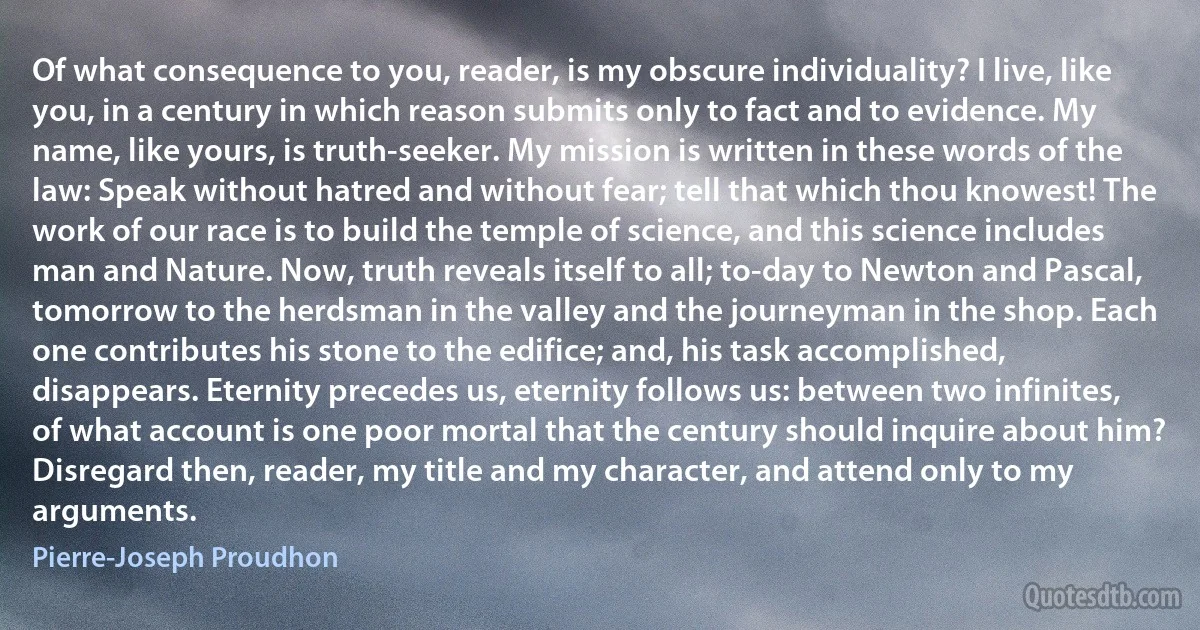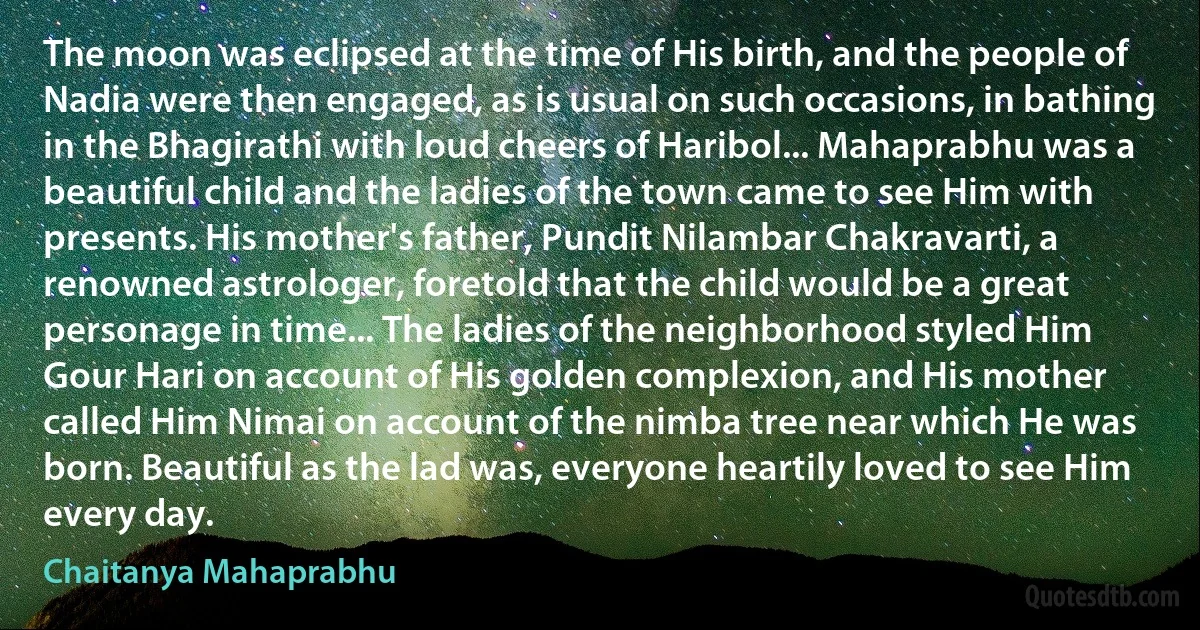Account Quotes - page 54
The tournament results show that in a Prisoner's Dilemma situation it is easy to be too clever. The very sophisticated rules did not do better than the simple ones. In fact, the so-called maximizing rules often did poorly because they got into a rut of mutual defection. A common problem with these rules is that they used complex methods of making inferences about the other player-and these inferences were wrong. Part of the problem was that a trial defection by the other player was often taken to imply that the other player could not be enticed into cooperation. But the heart of the problem was that these maximizing rules did not take into account that their own behavior would lead the other player to change.

Robert Axelrod
This is believed to be the completest list of this voluminous, prosiack, and driveling monk, that can be formed...in truth, and fact, these stupid and fatigueing productions, which by no means deserve the name of poetry, and their stil more stupid and disgusting author, who disgraces the name and patronage of his master Chaucer, are neither worth collecting (unless it be as typographical curiositys, or on account of the beautyful illuminations in some of his presentation copys), not even worthy of preservation: being only suitablely adapted "ad ficum & piperem," and other more bare and servile uses. How little he profited by the correction, or instructions of his great patron is manifest in almost every part of his elaborate drawlings, in which there are scarcely three lines together of pure and acurate metre.

Joseph Ritson
The left blames white nationalism. The right blames mental illness. Neither explains that it happens often here and nowhere else. But mass shootings account for a very small number of gun deaths: Many more women are killed in their home by guns. Men used to just knock women around, but rarely did death result. But with a gun on hand, there's a death. Half of the gun deaths are suicide. The proliferation of guns is a huge problem, but its cause is not lack of regulations. There were lots of regulations in the '70s when this started; going postal and school shootings started in the '70s.

Roxanne Dunbar-Ortiz
Citizenship means standing up for everyone's right to vote. Last year, part of the Voting Rights Act was weakened, but conservative Republicans and liberal Democrats are working together to strengthen it. And the bipartisan commission I appointed, chaired by my campaign lawyer and Governor Romney's campaign lawyer, came together and have offered reforms so that no one has to wait more than a half hour to vote. Let's support these efforts. It should be the power of our vote, not the size of our bank account, that drives our democracy.

Barack Obama
That which enables man to have a real relation to truth and which removes his temptation to lie, must be something independent of all time, something absolutely unchangeable, which as faithfully reproduces the old as if it were new, because it is permanent itself; it can only be that source in which all discrete experiences unite and which creates from the first a continuous existence. It is what produces the feeling of responsibility which oppresses all men, young and old, as to their actions, which makes them know that they are responsible, which leads to the phenomena of repentance and consciousness of sin, which calls to account before an eternal and ever present self things that are long past, its judgment being subtler and more comprehensive than that of any court of law or of the laws of society, and which is exerted by the individual himself quite independently of all social codes (so condemning the moral psychology which would derive morality from the social life of man).

Otto Weininger
Beloved-of-the-Gods, King Piyadasi, does not consider glory and fame to be of great account unless they are achieved through having my subjects respect Dhamma and practice Dhamma, both now and in the future. For this alone does Beloved-of-the-Gods, King Piyadasi, desire glory and fame. And whatever efforts Beloved-of-the-Gods, King Piyadasi, is making, all of that is only for the welfare of the people in the next world, and that they will have little evil. And being without merit is evil. This is difficult for either a humble person or a great person to do except with great effort, and by giving up other interests. In fact, it may be even more difficult for a great person to do.

Ashoka
The effective inventor of the telescope and compound microscope was Galileo... Galileo's account of the path of the rays through the concave eye-piece and convex objective which he used was not satisfactory and was considerably improved by Kepler, who suggested the use of two convex lenses which became the basis of later instruments. Kepler had already written an important optical treatise in the form of a commentary on Witelo's Perspectiva... His improvements to the telescope may be regarded as what he had learned from the thirteenth-century writer.

Johannes Kepler
Upon the subject of education, not presuming to dictate any plan or system respecting it, I can only say that I view it as the most important subject which we as a people can be engaged in. That every man may receive at least a moderate education, and thereby be enabled to read the histories of his own and other countries, by which he may duly appreciate the value of our free institutions, appears to be an object of vital importance, even on this account alone, to say nothing of the advantages and satisfaction to be derived from all being able to read the Scriptures, and other works both of a religious and moral nature, for themselves.

Abraham Lincoln
Everything that psychology has learned about the processes of human choice is consistent with the view expressed by Adam Smith. People do have reasons for what they do, but these reasons depend very much on how people frame or represent the situations in which they find themselves, and upon the information they have or obtain about the variables that they take into account. Their rationality is a procedural rationality; there is no claim that they grasp the encironment accurately or comprehensively. To predict their behavior in specific instances, we must ourselves know what they are attending to, and what information they have.

Adam Smith
In generating the first ever systematic account of the market mechanism in commercial society, Smith's political economy drew not only on his critical reflections of the unsytematic nature of earlier economic writing, but equally on his didactic revisions of earlier natural law and natural jurisprudence traditions as well as the empirically suggestive but unsystematic historical inductive method of tracing the progress of civil society previously introduced by thinkers such as the great Montesquieu. These revisions can be linked directly to Smith's political thinking. It may be questioned whether Adam Smith can be said to have developed a political theory. Certainly, it has been and yet remains a subject of debate. Unquestionably, however, Smith isolated important political concerns and made political conceptual contributions which he linked systematically to his theory of commercial society and the conduct of the market.

Adam Smith
I think that it came as a surprise, if not a shock, to most people, when that notorious advertisement appeared in The Times in 1967, to find that there is a lobby in favour of legalising cannabis. ... The existence of this lobby is something that the House and public opinion should take into account and be ready to combat, as I am. It is another aspect of the so-called permissive society, and I am glad if my decision has enabled the House to call a halt in the advancing tide of so-called permissiveness. I regard it as one of the most unlikeable words that has been invented in recent years.

James Callaghan
You have helped to fight many battles on many fronts. I remember one that you fought and just to show you how much progress has been made, when I came here I was one of the few Congressmen the first year I was in Washington from my section of the country--only three of us from the South signed a petition to call a caucus to discharge a committee on the wage and hour bill. The other two, Maury Maverick and W. D. MacFarlane, both got defeated at the next election on account of their signing that petition. They were revolutionists and they were rebels and they kicked over the dinner pail and they caused a lot of trouble. And we actually, though finally with President Franklin Roosevelt's great support and by a fireside chat, we passed that bill that gave working people a minimum wage of 25 cents an hour. That was in 1938.

Lyndon B. Johnson
The next day Rastignac dressed himself very elegantly, and about three o'clock in the afternoon went to call on Mme. de Restaud. On the way thither he indulged in the wild intoxicating dreams which fill a young head so full of delicious excitement. Young men at his age take no account of obstacles nor of dangers; they see success in every direction; imagination has free play, and turns their lives into a romance; they are saddened or discouraged by the collapse of one of the visionary schemes that have no existence save in their heated fancy. If youth were not ignorant and timid, civilization would be impossible.

Honoré de Balzac
As for predictions of a global culture, they fail to take into account the rootedness of cultures in time and place, and the ways in which identity depends on memory. A truly non-imperial "global culture", timeless, placeless, technical and affectively neutral, must be memory-less and hence identity-less; or fall into a postmodern pastiche of existing national cultures and so disintegrate into its component parts. To date, we cannot discern a serious rival to the nation for the affections and loyalties of most human beings.

Anthony D. Smith


